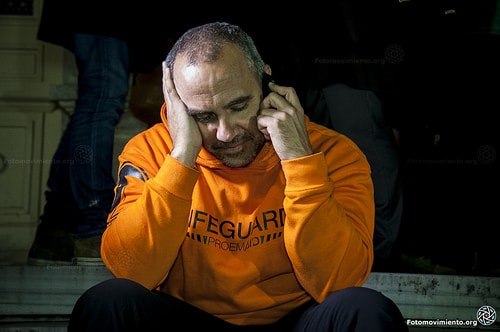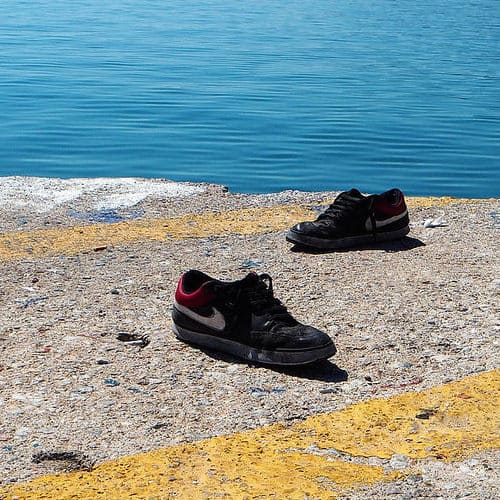Human smuggling has been considered a crime in the European context since the beginning of the 2000s. It has been defined in the Council Directive 2002/90/EC as the facilitation of unauthorized entry, transit, and residence, and is conceived as covering all phases and all types of migrant smuggling. Over the last two years sentences for human smuggling have gone up and, in the context of the current ‘refugee crisis’, new solutions to fight human smuggling are at the forefront.
In March 2015, the European Commission launched its plan and priorities for a ‘new comprehensive European agenda on migration’ in which it expressed its wish to enhance actions “in fighting irregular immigration and smuggling more robustly”. This agenda was complemented by the ‘EU action plan against migrant smuggling’, which underlines the critical need of state agencies to better collect and share information on the modus operandi, routes and economic models of smuggling networks, in order to understand the business model of criminal networks and design adequate responses. Europol’s new European Migrant Smuggling Centre is presented as an important EU information hub in this fight against migrant smuggling.
Despite the proposed comprehensive approach, the dominant way smuggling is framed and understood is clearly one of organized crime.
This particular framing makes it easier to legitimize the ‘fight’. Who can be against fighting organized crime? But it is important to realize that this crime-dominated focus overlooks the structural reality of migration and important underlying characteristics of the smuggling business.
It is misleading to use the term smuggler for all actors who help migrants in their border crossing process. Alongside the highly organized, criminal actors, there are also local people living in border regions who have managed to turn border crossing into a way to make a living. They sometimes charge low prices. Moreover, smuggling is often organized by family members, relatives, or friends who are helping each other to find ways to escape desperate situations. Increasingly civil society in Europe has also become involved in helping refugees out with their often difficult border crossing processes.
Smuggling for Humanitarian Motives
The EU action plan against migrant smuggling notes that appropriate criminal sanctions should be in place while avoiding the risks of criminalizing those who provide humanitarian assistance to migrants in distress. Implicitly the inherent tension between the criminalization of smugglers on the one hand and of those providing humanitarian assistance on the other is thus acknowledged. The EU actions to fight against smuggling, however, have run in parallel with an incremental use of sanctions in the EU against individuals directly or indirectly involved in helping and/or providing humanitarian assistance to undocumented people.
In the autumn of 2015, during which substantial numbers of refugees in desperate situations left Turkey and travelled through both EU and Schengen states – some of them passing into western Balkan states and back into EU states – the EU’s measures against facilitation of irregular migration were instrumentalized by some political leaders to warn their citizens and the citizens of neighboring states against assisting refugees on the move. However, NGOs and civil society all over Europe have provided assistance to irregular migrants despite the warnings and the intimidation.
Some of these ‘rescuers’ have now been criminalized, prosecuted or are under investigation. I argue it is questionable whether we should criminalize all these forms of assistance to refugees.
Rescuing Refugees and Being Accused for Smuggling
In January 2015, the Greek police pressed charges carrying prison sentences of up to 10 years against a group of Spanish lifeguards who rescue refugees in Lesvos. A retired British soldier stood trail in France for attempting to bring a four-year-old Afghan girl from the Calais refugee camp to reunite with family in the UK. He was convicted but eventually the €1,000 fine was suspended. In March 2016, high-profile Danish campaigner Lisbeth Zornig was found guilty of human smuggling and fined DKr22,500 (€2,930) after giving a lift to a family of six Syrians. She was charged under Denmark’s Aliens Act, which bans providing transport to people without a resident permit. Under the UN Law this could not be seen as smuggling as no money was charged.

The UN approach to human smuggling, as it emerges from the UN Protocol against Smuggling (UNPS), is however considerably different from that of the EU. Even though it does not formally establish smuggled migrants as victims, the protection of their rights is among the protocol’s main concerns. Moreover, the term ‘assistance’ denotes an action that is being carried out at the request of the person who is assisted. Under UN law smuggling is recognized as a commodification of human beings and the wrongness is defined around profit making. It is only smuggling unless it is committed in order to obtain, directly or indirectly, a financial gain or other material benefit. Activities of those who provided support to migrants for humanitarian reasons or on the basis of close family ties were previously excluded from the scope of criminalization. This is different from the facilitation directive of the EU, where smuggling is framed as the procurement of illegal entry – a stand-alone action with a meaning of its own. Migrants and refugees are now seen in Europe as much more actively contributing to the deed.
The action plan presented by the European Commission seems ready to abandon the complicity approach to human smuggling. Smugglers are not depicted as mere migrants’ facilitators anymore. Their relationship with those smuggled has begun to be interpreted more properly as one of exploitation. This terminological shift has important conceptual implications and changes the way smugglers are framed and the act of smuggling is understood.
Impact of Criminalization on Willingness to Rescue Refugees
History is full of examples of people who have saved migrants for humanitarian reasons; however, the hardening stance on migrant smuggling in Europe could impact day-to-day service provision by everyday humanitarian actors. The criminalization of smuggling for humanitarian reasons makes helping migrants riskier, and indirectly impinges on the chances migrants have to be helped when they find themselves in need of humanitarian assistance.
More debate is required regarding the significant differences from a citizen’s perspective between smuggling for humanitarian motives and for profit.
Following Council Directive 2002/90/EC, EU member states are not obliged to impose sanctions on individuals whose aim is to provide humanitarian assistance. But the recommendation of humanitarian exemption is not written into EU law, and only a quarter of member states have national legislation that reflects – at least in some form – the safeguards allowing states not to impose sanctions when irregular entry is facilitated for humanitarian purposes.
Currently, facilitating irregular entry is punished in all 28 EU-member states. The European Migration Forum recently argued to revise the Facilitation Directive to exempt humanitarian assistance from criminalization. Neither the migrants themselves, nor those delivering humanitarian assistance to migrants in distress, should be criminalized. A humanitarian exemption clause in the Facilitation Directive is very much needed if we want to protect European citizens and refugees against criminalization of smuggling for humanitarian motives.
Our co-producer openDemocracy offers more food for thought on human smuggling:
- Beyond common-sense notions of human smuggling in the Americas, by SOLEDAD ÁLVAREZ-VELASCO and MARTHA RUIZ
- Smuggling as social negotiation: pathways of Central American migrants in Mexico, by YAATSIL GUEVARA GONZÁLEZ
- The call to become a smuggler, by LUIGI ACHILLI
- Precarious livelihoods in eastern Indonesia: of fishermen and people smugglers, by
- Governing migrant smuggling: a criminality approach is not sufficient, by ANNA TRIANDAFYLLIDOU
- The struggle of mobility: organising high-risk migration from the Horn of Africa, by TEKALIGN AYALEW MENGISTE
- Communities of smugglers and the smuggled, by NASSIM MAJIDI
**********
Featured image by Stefanie Eisenschenk (flickr, CC BY 2.0)





